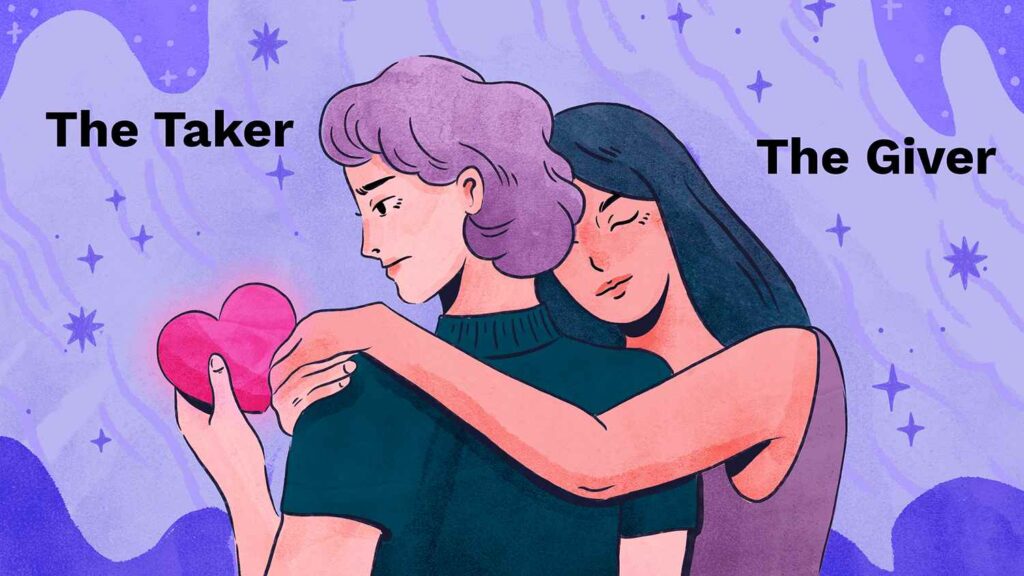Codependency is a type of relationship addiction where one person in the relationship depends on the other for their emotional well-being. This often leads to unhealthy and destructive relationships. If you are struggling with codependency, it is important to get help from a qualified therapist. In this blog post, we will discuss what codependency is and why seeking codependency counseling is a wise decision.
Contents
What Is Codependency?
 Codependency is defined as a psychological condition or a relationship in which a person depends on another person for his or her own self-worth. Also, it is a situation where one person enables another person’s addiction, poor mental health, immaturity, and irresponsibility.
Codependency is defined as a psychological condition or a relationship in which a person depends on another person for his or her own self-worth. Also, it is a situation where one person enables another person’s addiction, poor mental health, immaturity, and irresponsibility.
Codependents lack a healthy sense of self and have difficulty functioning independently. They define themselves through their relationships and need others to validate their existence. This condition is usually learned in childhood.
There are two types of codependency: relationship codependency and emotional codependency.
Relationship codependency occurs when a person is unable to have a healthy, functional, and independent relationship. Emotional codependency occurs when a person cannot regulate their emotions and depends on others to do so.
Why Do People Develop Codependency?
There is no single answer to this question, as the reasons why people develop codependency are varied and unique. However, there are some common factors that can contribute to the development of codependent behaviors, including:
- being raised in a dysfunctional or abusive home environment
- having parents who were codependent themselves
- growing up feeling isolated or alone
- being taught that love is conditional and must be earned
These reasons can be further compounded by other life experiences, such as major trauma or chronic stress. Codependency can also be passed down from generation to generation. As children learn to model the behaviors they see in their parents or caregivers.
If you think you might be codependent, it’s important to seek professional help. Codependency counseling can provide you with the tools and support you need to break free from unhealthy patterns.
How To Know If I need Codependency Counseling?
Codependency counseling is not just for those in romantic relationships. If you find yourself feeling excessively responsible for another person’s happiness, well-being, or success, you may be codependent. Other signs that indicate a need for codependency counseling include:
Trying to control others
If you feel the need to micromanage or control those around you, it may be a sign that you’re codependent. This often manifests as giving unsolicited advice, “checking in” too frequently, or constantly offering help even when it’s not wanted. Also, if you find yourself getting angry or upset when others don’t follow your suggestions, it’s a sign that you may need to work on letting go of control.
Difficulty communicating honestly
This is often a result of feeling like you have to protect the other person or that honest communication will damage the relationship. You might avoid sharing your true feelings, needs, and opinions out of fear of rejection or conflict. This can lead to resentment and further distance in the relationship. In fact, codependency is often described as a pattern of dysfunctional relationships.
Low self-esteem
Low self-esteem has a direct link with codependency. If you are indicating low self-esteem and are looking for help, you may want to consider codependency counseling. Because this behavior is usually learned in childhood, counseling can help you to understand why you may feel inadequate or unable to cope independently.
People pleasing
If you are a codependent person you might seem like a people pleaser. You put other people’s needs before your own and often do things you don’t want to do to keep others happy. This can be exhausting and leave you feeling resentful. It’s important to learn how to set boundaries with other people and take care of yourself. Otherwise, this is a never-ending cycle.
Fear of abandonment or rejection
 It is very common for people who are codependent to have a fear of abandonment or rejection. This can be due to many different experiences in their life, such as being abandoned by a parent or carer or being rejected by peers. This fear can lead to them feeling isolated and alone, which can further fuel their dependency on others. As in codependency, people are used to being in a codependent relationship, and it can be difficult for them to break free from this cycle.
It is very common for people who are codependent to have a fear of abandonment or rejection. This can be due to many different experiences in their life, such as being abandoned by a parent or carer or being rejected by peers. This fear can lead to them feeling isolated and alone, which can further fuel their dependency on others. As in codependency, people are used to being in a codependent relationship, and it can be difficult for them to break free from this cycle.
Inability to set boundaries
Another common issue that arises in codependent relationships is the inability to set boundaries. This means that codependents will often allow others to take advantage of them or will not assert their own needs and wants. This can be due to the fear of rejection or abandonment, as mentioned above. It can also be because they have a low sense of self-worth and feel that they do not deserve to have their needs met.
Feeling trapped in a relationship
This feeling is really common among people in codependent relationships. You might feel like you can’t live without the other person, or that you need them to take care of you. These feelings can be really intense and make it hard to imagine life without the other person. And a trap of codependency is that the more we try to control someone or fix them, the more they pull away.
So, these are some signs that you might be in a codependent relationship. And you are very much in a need of counseling if you feel like any of these signs resonate with your relationship. In fact, getting codependency counseling will be very beneficial for you, as it will help you to learn how to set boundaries, understand your worth, and build a healthier relationship.
How Does Codependency Counseling Work?
When you consider codependency counseling, you might be wondering how it works. After all, codependency is often about unhealthy relationships. So what are the ways a counselor can help you? Here are some ways:
Helps you understand codependency
At first, a counselor helps you understand what codependency is. They will help you see how your thoughts, emotions, and behaviors might be codependent. This might involve:
- talking about what codependency is,
- how it manifests, and
- how it affects your life.
In fact, counselors in codependency counseling provide resources, such as books or articles, to help you learn more. Once you understand codependency, you can start to change your thinking and behavior.
Identifies codependent behaviors
This is the essential step during counseling. It is important to know which behaviors you should work on. Without this knowledge, it would be difficult to make progress. There are many different types of codependent behaviors. Some common ones include:
- being overly helpful,
- always trying to please others,
- needing constant reassurance,
- being a people pleaser, and
- having difficulty saying no.
So, it is really important to identify these behaviors in order to work on them. It is kind of working upon the root causes in order to change the outcomes.
Teach you healthy coping skills
 When a counselor learns about your root cause and those unhealthy behaviors, they can start to work with you on developing some healthy coping skills. This might include learning how to set boundaries or communicating in a more assertive way. They can also provide guidance on how to deal with difficult emotions in a more productive way.
When a counselor learns about your root cause and those unhealthy behaviors, they can start to work with you on developing some healthy coping skills. This might include learning how to set boundaries or communicating in a more assertive way. They can also provide guidance on how to deal with difficult emotions in a more productive way.
More often, healthy coping skills are essential in order to work through Codependency. Otherwise, it will be very difficult to break those unhealthy patterns.
Works through your emotions
This is the way to work through the emotions that you may feel when you are in a codependent relationship. You will be able to talk about what you are feeling and why you are feeling it. This can help you to understand your emotions and how to deal with them. This might involve exploring the roots of your codependency, processing difficult emotions, and learning to love yourself.
Moreover, codependency counseling is actually a process of learning how to be in a healthy, functional relationship with another person. In other words, it is not just about you anymore. It is about learning to be interdependent – two people who are equal and dependent on each other for support and love.
Returns power to the individual
One of the goals of codependency counseling is to return power to the individual. This may involve working on assertiveness and boundary-setting skills. It can also involve exploring the root causes of codependency, such as childhood trauma or a dysfunctional family system.
By using these ways, they ultimately return a sense of control and empowerment back to the individual.
Codependency counseling can be an effective way to address these issues and help people move on from harmful patterns of codependent behavior. If you think you might benefit from this type of counseling, talk to a mental health professional about getting started.
Are There Any Drawbacks?
When things aren’t going well in a codependent relationship, one or both partners may feel they need to seek outside help. This is where counseling can be very beneficial. In most cases, however, each person must be willing to change their own behavior for any lasting improvement to occur. And that’s not always easy.
So, here are some of the possible drawbacks of codependency counseling:
Take longer time
This is one of the potential drawbacks of counseling. It may take a long time for you and your partner to change the patterns of codependent behavior that have developed over time. This happens because it takes time to learn new ways of relating to each other.
Moreover, you need to understand that not all people change at the same pace. So, it is possible that one person in the relationship may be ready to change faster than the other. This can create frustration and tension if both partners are not on the same page. Therefore you have to be patient and be prepared for the time it will take.
Requires more effort
Like anything worth doing, changing codependent behaviors requires more effort than simply going to see a counselor once or twice. Counseling is a process that takes time, energy, and commitment. It’s not something that can be fixed overnight. That being said, the work is worth it.
Breaking free from codependency can lead to a happier, healthier life. If you are ready to make the commitment to change, counseling can help you learn how to break free from codependent behaviors.
May require individual counseling
In some cases, one partner may need to seek individual counseling in order for the relationship to improve. This is often the case when one person has a history of Codependency issues. Individual counseling can help that person learn how to deal with their own emotions and needs, without relying on their partner to fill that role. If you think individual counseling may be necessary, talk to your partner about it and see if they are open to the idea.
High cost
 Another potential drawback is that it may cost you and your partner money to see a counselor. If you are already on a tight budget, this can be a difficult expense to manage. However, there are some ways to offset the cost of counseling, such as using your health insurance or looking for sliding scale options.
Another potential drawback is that it may cost you and your partner money to see a counselor. If you are already on a tight budget, this can be a difficult expense to manage. However, there are some ways to offset the cost of counseling, such as using your health insurance or looking for sliding scale options.
So, these are some potential drawbacks but obviously, if you are willing to work through them, counseling can provide many benefits for your relationship. And these drawbacks can be mitigated if you are proactive about finding the right counselor and being honest about your expectations.
Conclusion
Conclusively, codependency counseling is a process that can help people learn how to develop healthier relationships. It is important to seek out a counselor that you trust and feel comfortable with. In this way, you will more likely to get the most benefits from the process. If you think you might be codependent or are in a codependent relationship, don’t hesitate to reach out for help.
For more information, please contact MantraCare. Relationships are an essential part of human life. It is the connection between people, and it helps us to form social bonds, understand and empathize with others. If you have any queries regarding Online Relationship Counseling experienced therapists at MantraCare can help: Book a trial therapy session


